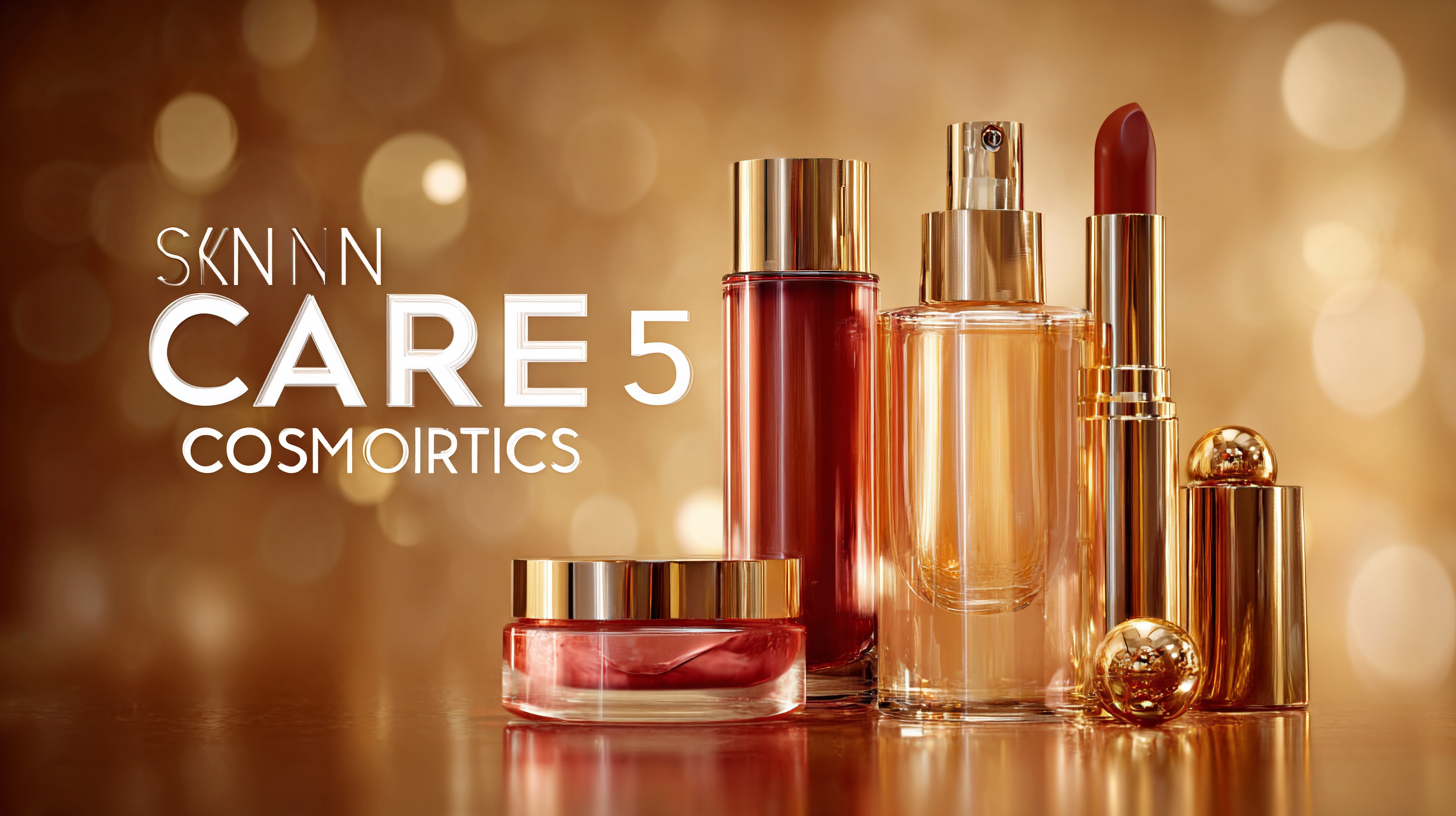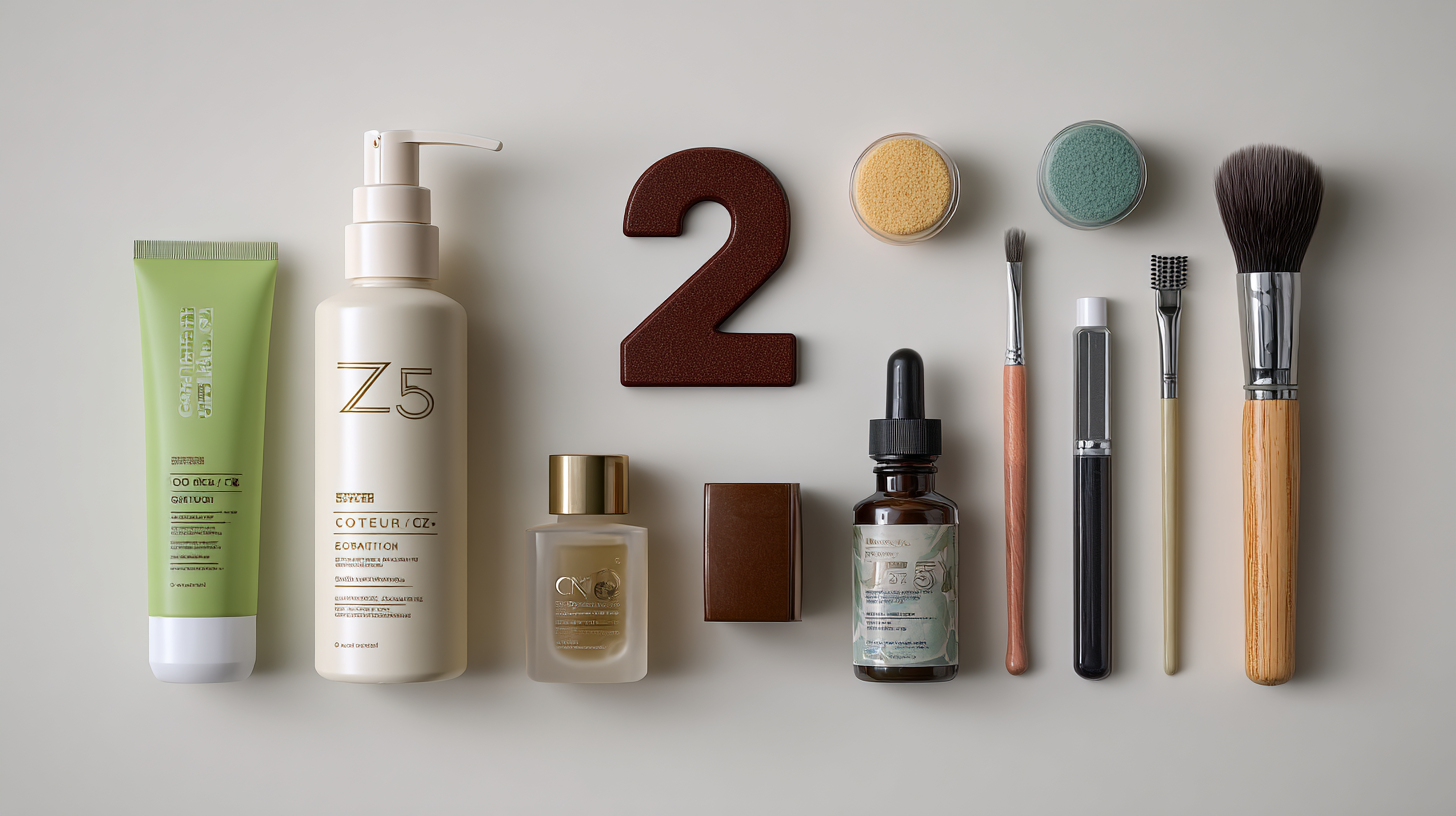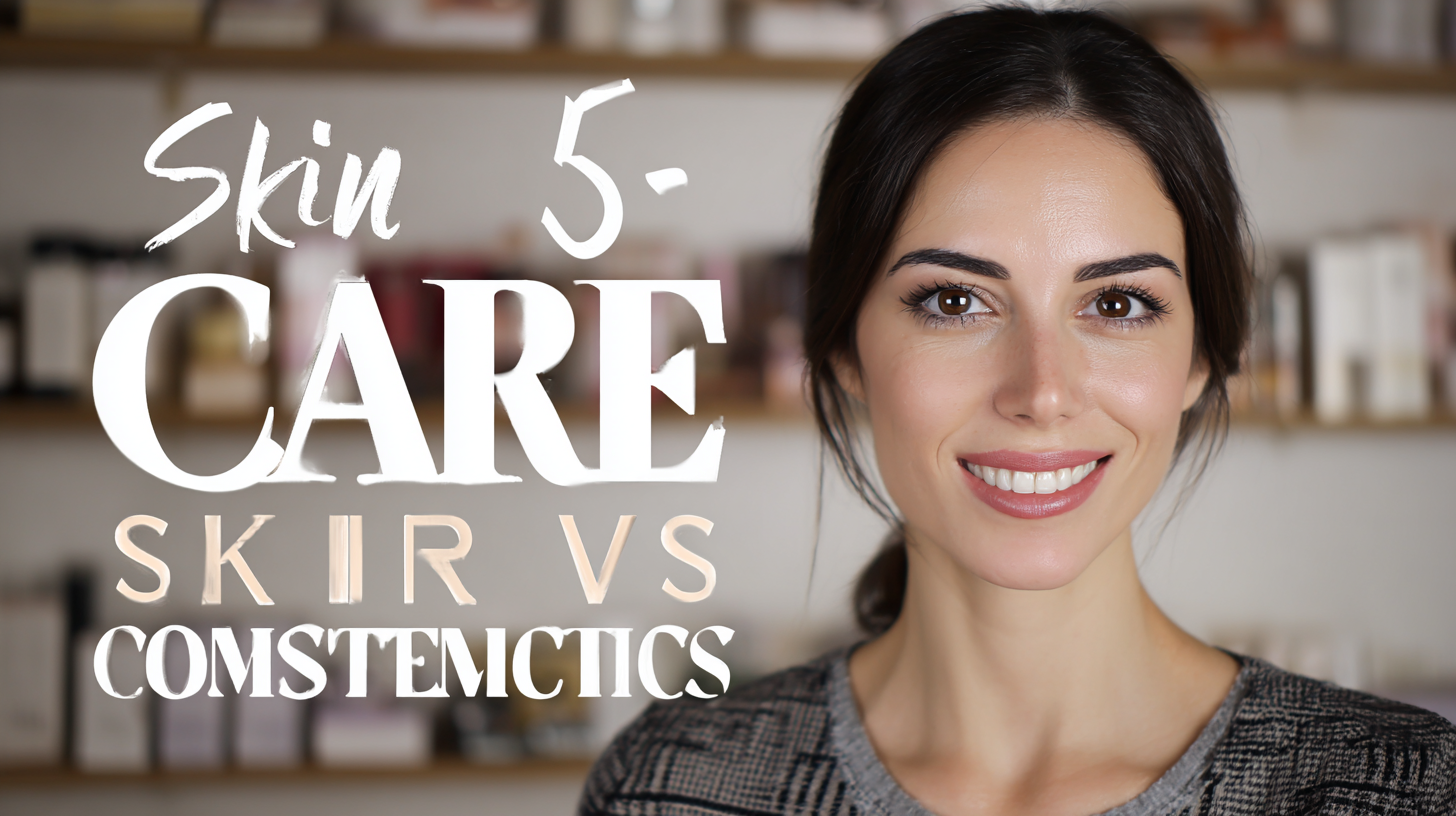Comparing the Top 5 Best Skin Care Cosmetics: Which One is Right for You?
As the global skin care cosmetics market continues to expand, projected to reach over $180 billion by 2024 according to a report by Statista, consumers are increasingly faced with an overwhelming array of choices. With the rise of social media influencers and the emphasis on personal branding, the demand for effective and innovative skin care products has never been higher. However, navigating through the multitude of brands and formulations can be daunting.

This blog aims to dissect the top five skin care cosmetics on the market, evaluating their ingredients, efficacy, and suitability for various skin types. By understanding the qualities of reputable manufacturers and exploring targeted solutions, readers can make informed decisions that align with their individual skin care needs and preferences.
Understanding Your Skin Type: Why It Matters for Choosing Skin Care Products
 Understanding your skin type is crucial when selecting skin care products. Each skin type—whether it's oily, dry, combination, or sensitive—has unique characteristics and needs. For instance, individuals with oily skin may benefit from lightweight, oil-free moisturizers, while those with dry skin might require richer, hydrating formulations. It's essential to assess your particular skin concerns and choose products that address these issues effectively.
Understanding your skin type is crucial when selecting skin care products. Each skin type—whether it's oily, dry, combination, or sensitive—has unique characteristics and needs. For instance, individuals with oily skin may benefit from lightweight, oil-free moisturizers, while those with dry skin might require richer, hydrating formulations. It's essential to assess your particular skin concerns and choose products that address these issues effectively.
When building your skincare routine, consider incorporating essential steps like cleansing, moisturizing, and sunscreen. Additionally, specific actives can enhance your regimen. For example, if you're seeking anti-aging benefits, look for products featuring alternatives to retinol, such as bakuchiol, which can be gentler on sensitive skin.
Here are a few tips for selecting the right products: first, always perform a patch test to avoid adverse reactions; second, read ingredient labels to ensure they align with your skin's needs; and finally, don’t hesitate to consult with dermatologists for personalized recommendations that suit your skin type and lifestyle. By being mindful of these factors, you can cultivate a skincare routine that nurtures and enhances your skin beautifully.
Key Ingredients to Look for: Benefits of Natural vs. Synthetic Alternatives
When selecting skin care cosmetics, understanding the key ingredients is crucial in determining which products will be most beneficial for your skin type.
Natural ingredients, such as plant extracts and essential oils, offer a range of benefits, including antioxidant properties, anti-inflammatory effects, and nourishment without harsh chemicals.
For instance, ingredients like aloe vera and chamomile can soothe sensitive skin, while coconut oil provides deep hydration.
These options appeal to those seeking gentle formulations that minimize irritation and promote a healthy complexion.
On the other hand, synthetic alternatives can offer advanced benefits that may not be easily found in natural ingredients.
These can include stabilized active ingredients like retinol, which is renowned for its effectiveness in reducing signs of aging, or peptides that encourage collagen production.
While some may express concerns about using synthetic cosmetics, it's essential to recognize that many formulations are rigorously tested for safety and efficacy.
Ultimately, the choice between natural and synthetic ingredients depends on individual skin needs and preferences, highlighting the importance of tailored skincare that aligns with personal values and goals.
Top 5 Skin Care Cosmetics: A Comparative Analysis of Formulations and Effects
When it comes to selecting the right skincare cosmetics, understanding the formulations and their effects is crucial. The top five products in the market range from lightweight serums to rich creams, each catering to different skin types and concerns. For instance, hyaluronic acid is a popular ingredient in many of these formulations, known for its ability to deeply hydrate the skin. In contrast, products containing retinol can promote cell turnover and help reduce the appearance of fine lines.
**Tip:** Always check the ingredient list before purchasing. Skin types vary – those with oily skin may benefit more from gel-based products, while dry skin types might find creamier options more effective. It's also important to consider any sensitivities; for example, fragrance-free products are often better for sensitive skin.
Additionally, the efficacy of these products can be enhanced by adopting a consistent skincare routine. Using them at the right time during your regimen, such as applying serums before heavy creams, can maximize their benefits.
**Tip:** Conduct a patch test when trying a new product to see how your skin reacts before applying it all over your face. This small step can prevent adverse reactions and lead to a more informed decision on what works best for your skin.
Comparing the Top 5 Best Skin Care Cosmetics: Which One is Right for You?
| Product | Key Ingredients | Skin Type | Main Benefits | Price Range |
|---|---|---|---|---|
| Moisturizing Cream | Hyaluronic Acid, Glycerin | Dry, Normal | Intense Hydration, Softening | $30 - $50 |
| Anti-Aging Serum | Retinol, Vitamin C | All Skin Types | Reduces Fine Lines, Brightens Skin | $50 - $80 |
| Sunscreen Lotion | Zinc Oxide, Aloe Vera | Oily, Combination | UV Protection, Soothing | $20 - $35 |
| Cleansing Gel | Salicylic Acid, Tea Tree Oil | Acne-Prone | Cleanses Pores, Reduces Breakouts | $15 - $25 |
| Nourishing Oil | Argan Oil, Jojoba Oil | Dry, Sensitive | Deep Moisture, Skin Repair | $40 - $70 |
Budget-Friendly vs. Luxury Brands: Finding the Right Balance for Your Skin
When it comes to skincare, finding the right balance between budget-friendly options and luxury brands can be crucial for achieving healthy skin. Many consumers often struggle with the decision of whether to splurge on high-end products or stick to more affordable alternatives. The good news is that there are plenty of options available that offer quality results without breaking the bank. Discovering the best affordable skincare products doesn’t mean sacrificing performance; several brands deliver luxury-tier results at a fraction of the price.
Tip 1: Do your research and read reviews from beauty editors and experts. They frequently test products and can offer insight into which budget-friendly skincare lines rival more expensive brands in effectiveness.
Tip 2: Consider the ingredients. Look for products that prioritize clean, nourishing compositions. Whether you opt for a budget buy or a splurge, ingredients play a vital role in how well a product works for your skin type.
Tip 3: Don’t shy away from trying Black-owned skincare brands, which often provide unique formulations and approaches tailored to diverse skin types. Many of these brands blend luxury and affordability, allowing you to elevate your routine while staying within budget.
Comparing Budget-Friendly and Luxury Skin Care Brands
Evaluating Cruelty-Free and Eco-Friendly Options in Skin Care Cosmetics
As consumers increasingly prioritize their health and the environment, the shift towards cruelty-free and eco-friendly skin care products has gained unprecedented momentum. The global market for natural and organic skin care products was valued at USD 10.1 billion in 2024, with projections indicating it will reach USD 18.7 billion by 2028. This growth is largely fueled by the rising awareness of the hazards posed by synthetic cosmetics, which have been linked to various health risks. The push for sustainable beauty products is not merely a trend; it reflects a deeper demand for transparency and ethical practices within the cosmetics industry.
However, despite advancements, sustainable packaging presents significant challenges. Mass-produced sustainable cosmetics packaging often falls short due to issues like effectiveness and cost. An assessment of the industry's practices reveals that many brands engage in greenwashing, making it difficult for consumers to discern genuinely sustainable options from those that are simply marketed as such. This highlights the importance of scrutinizing products and brands, ensuring that their claims align with their practices, especially in an industry where ethical certifications can greatly influence purchasing decisions.

